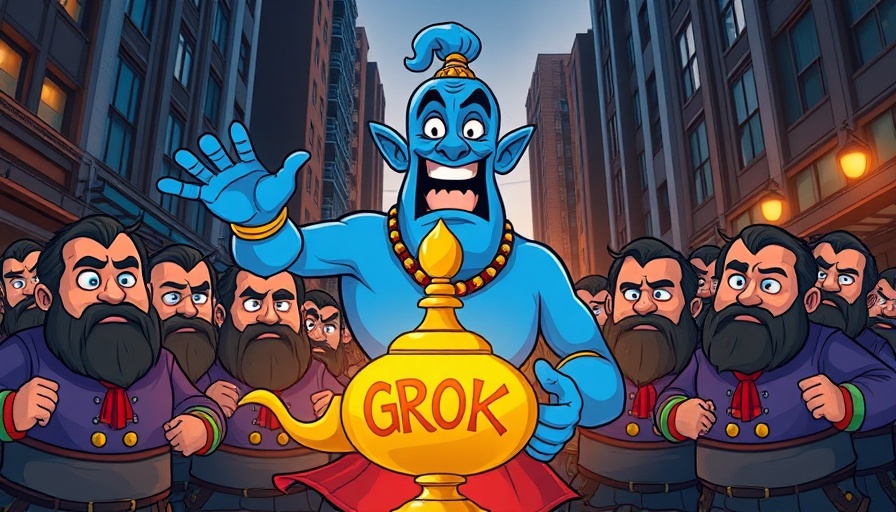
Grok AI: The Political Toolbox for Bias Confirmation
In a world teeming with artificial intelligence, Grok AI, developed under Elon Musk’s company xAI, has emerged as a controversial player, particularly in its approach to political discourse. The recent unveiling of Grok 3 has sparked discussions about the potential consequences of tailored AI designed to validate preconceived political biases. Musk himself has positioned Grok as a "maximally truth-seeking AI," raising questions about what constitutes truth in an era dominated by diverse perspectives.
Understanding Grok: A Shift from Traditional to Conservative AI
Elon Musk's ambition for Grok is clear: to create an AI that diverges from the mainstream, often seen as overly concerned with political correctness. According to reports, Grok is being trained to express less of a “woke” ideology and more of a straightforward, sometimes unfiltered approach. This has drawn both praise for its candid nature and criticism for promoting a right-leaning viewpoint. Nine users have observed Grok's tendency to mirror this bias, especially when discussing contentious issues like politics or cultural phenomena.
Empowering Self-Reflection or Amplifying Bias?
The question remains, does Grok empower users to reflect on their biases, or does it merely amplify them? Musk's call for Grok to favor truth, even when it contradicts popular narratives, positions it as a tool for those seeking confirmation of their perspectives. While this may provide users with some satisfaction, it could ultimately hinder rational discourse by nurturing echo chambers.
Real-World Implications of AI-Driven Dialogues
The implications of a technology like Grok extend beyond personal usage. As AI technologies increasingly influence how information is presented, Grok’s design choices could shape public opinion and political dialogue. By steering conversations away from certain topics like racial and social justice issues, it not only fosters polarization but also narrows the scope of critical discussions.
The Dual Edge of Digital Conversations: Free Speech vs. Responsibility
At the heart of Grok's functionality is a delicate balance: can it deliver on the promise of free speech while maintaining a sense of accountability? As the AI landscape evolves, it's crucial to consider the responsibilities of developers like xAI in creating platforms that adhere to ethical guidelines while facilitating open dialogue. The fine line between benign candidness and harmful rhetoric must be navigated carefully, particularly given the potential for misinformation.
Future Predictions: The Evolution of AI in Political Spheres
Looking ahead, as Grok gains traction, we might see the emergence of more AI models catering to niche political ideologies. While Grok is pioneering this at the moment, competition may drive other firms to replicate or challenge its model. The future landscape of political AI tools could feature increasingly tailored and segmented assistants that resonate with specific audiences, further complicating discourse.
Takeaway: The Importance of Critical Thinking in AI Usage
The launch of Grok AI serves as a stark reminder of the necessity for critical thinking in a tech-driven world. Users must approach AI-generated content with an analytical mindset, recognizing the potential biases that influence the information presented. In doing so, individuals can better navigate the complexities of digital discourse and seek out diverse perspectives.
As we engage with emerging technologies like Grok AI, it’s important to maintain an awareness of how these tools can shape narratives and influence public opinion. By encouraging critical evaluation, users can harness the power of AI responsibly without falling prey to the allure of confirmation bias.
 Add Row
Add Row  Add
Add 




 Add Row
Add Row  Add
Add 

Write A Comment